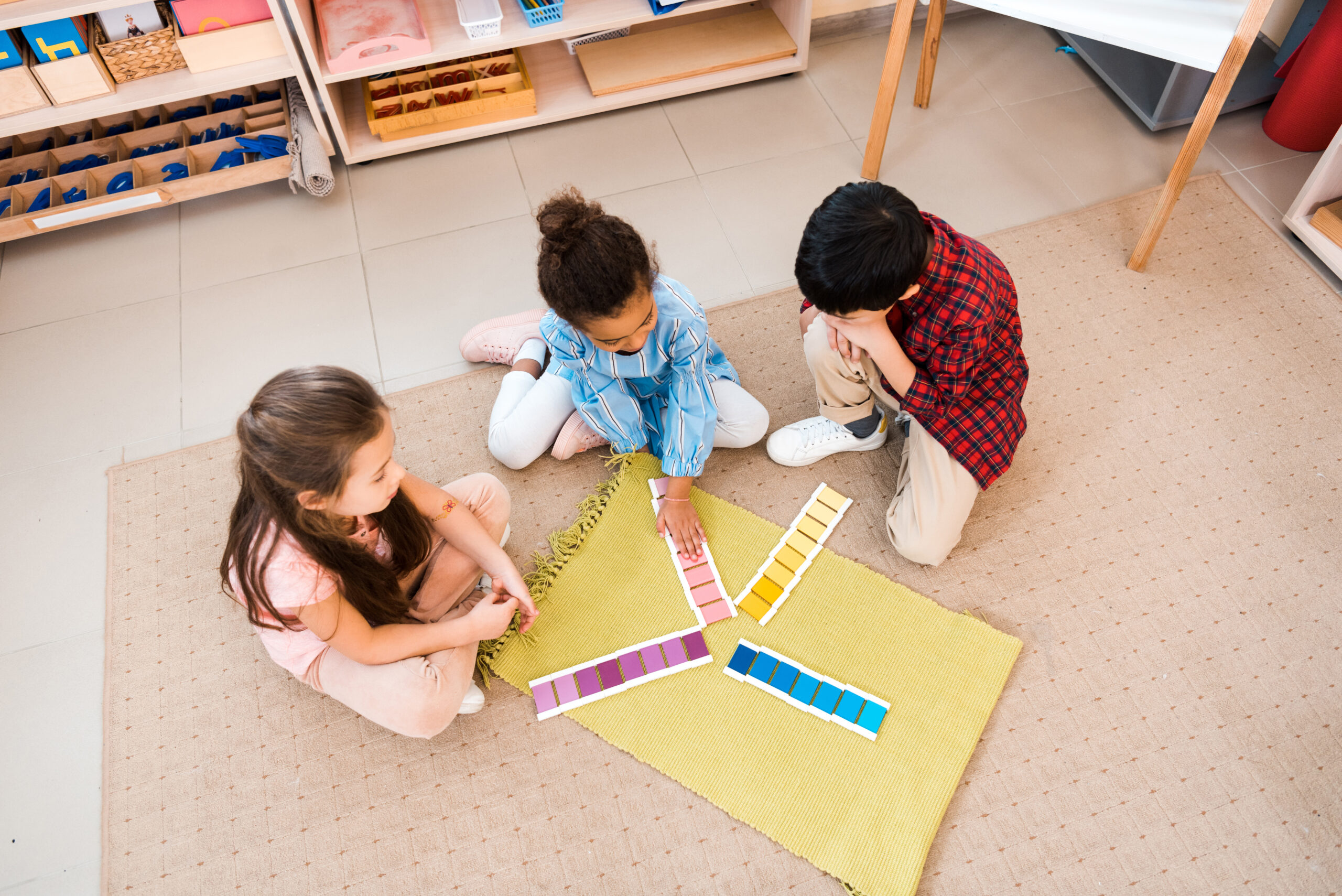Adults usually view play as a diversion from learning or essential work. However, as the renowned child psychologist Jean Piaget says, “Play is the work of children.” Free, independent play promotes a child’s healthy development. When children are in pain or nervous, adults look for activities or professional assistance to help them cope. We often miss one of the best tools we can use—play. The importance of encouraging students’ independent play cannot be overstated. Read on to learn why playing is important for children and how it helps their development.
How Children Learn Through Play
One of a child’s early learning experiences is through play. Babies learn through their senses and interacting with the world before speaking. Children as young as toddlers and preschoolers continue to learn various cognitive, physical, receptive/expressive, linguistic, social, and literary skills through play. In this sense, self-directed play and collaborative play are valuable educational tools for children. When we teach children letters and numbers, we don’t just tell them what an “A” or “1” is and leave it at that. Children develop an understanding of these ideas by using a variety of brain and body functions.
We assist kids by making up dances about letters, playing hopscotch, clapping, and listening to stories about these “academic concepts.” Playing with children helps set the stage for all other learning to occur.
Kids feel in control while playing. They can shape their play environment to suit their
preferences and requirements. Children gain an intense sensation of power and authority through play in situations of helplessness, fear, or crisis. Through play, children develop a sense of self and gain qualities like moral judgment, empathy, competence, and self-control. All of these lay a solid foundation for kids to learn how to think independently, make their own choices, and gain a positive sense of self. These are all essential abilities for kids to develop and manage themselves as they grow.
How Playing Helps in Brain Development
Activities like stacking blocks, stimulates the senses and builds brain circuits. The stimulus that comes from play lays the groundwork for later intellectual and social/emotional skills.
By engaging in simple play activities like blowing bubbles, children’s brains can begin to form the wiring connections necessary to learn how to breathe deeply. Deep breathing also helps them regulate themselves when they are scared or nervous. Playing is just as important as eating and sleeping for toddlers and young children.
How Playing Teaches Kids to Take Up Challenges
Children often bring unpredictability into their play. They challenge their limits and learn about themselves through interesting activities. They develop risk management skills through play that they can apply in the real world.
All parents are invested in their child’s growth and development. It’s vital to teach them fundamental skills such as:
– Bicycling
– Road Safety
– Swimming
Parents and teachers should teach children the value of trying again, learning from mistakes, and having confidence in themselves. This helps them recognize their boundaries. You should also let them have fun and be carefree while playing.
How We Can Help
It’s important to strike a balance between imparting knowledge to kids and letting them use play to explore the world on their terms. Encouraging play is an important part of encouraging their learning!
Check out Seeds Early Learning Ventura if you’re looking for a preschool with a welcoming, fun, playful, and safe environment where your child may explore and grow. We offer early childhood education of the highest caliber in a happy and upbeat setting. Schedule a tour today for more details.
